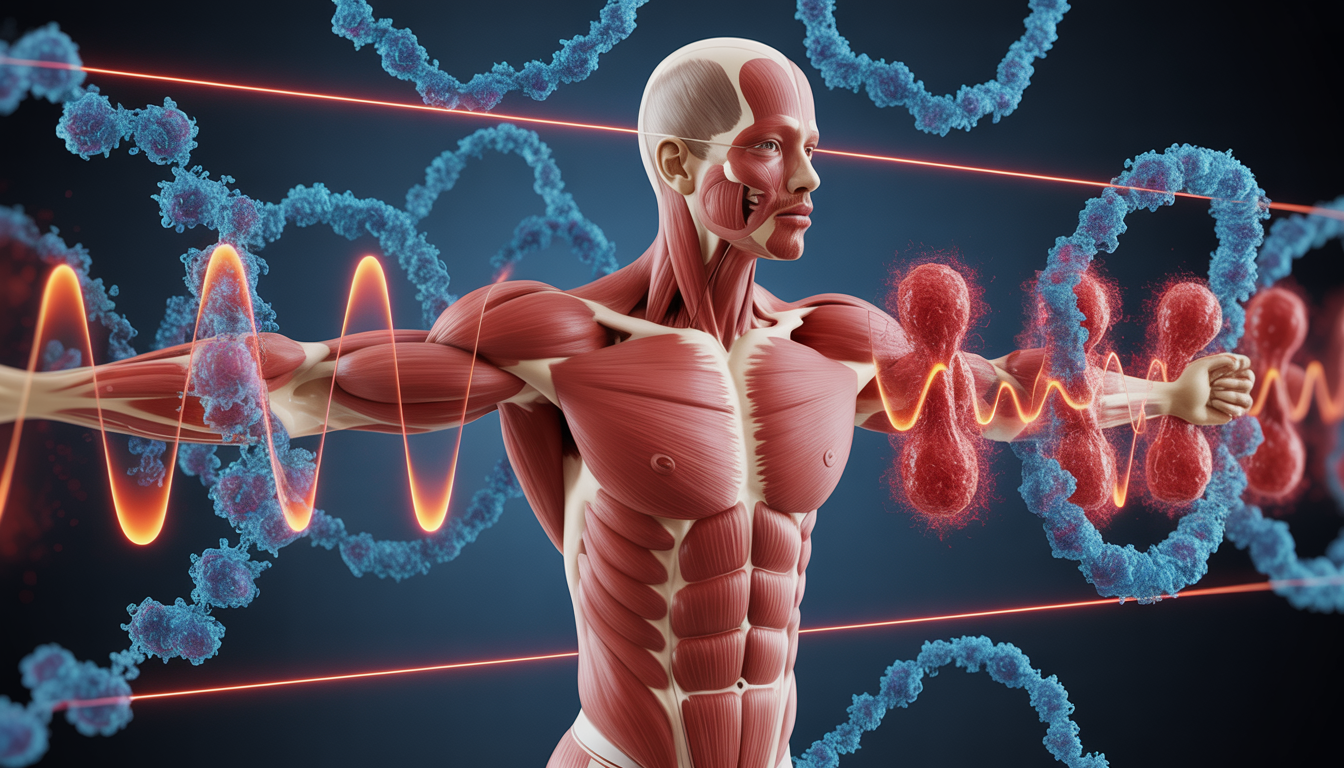


Adenosine Triphosphate Supplement: Boost ATP for Better Health
Adenosine triphosphate (ATP) supplements are pivotal in providing energy for all energy-dependent functions within the body. The substantial energy stored within ATP's phosphate bonds makes it an essential component for energy transfer. While the oral ingestion of adenosine triphosphate supplements leads to rapid ATP breakdown, removing its high-energy phosphate bonds, studies indicate that oral administration still enhances strength and exercise performance. Despite degradation, ATP's ability to enhance performance stems from extracellular functions unrelated to energy production. These functions require significantly less ATP than intracellular energy supply, indicating that the swift degradation of ATP when taken orally does not hinder its performance-enhancing capabilities.
The best-characterized extracellular functions of ATP that improve muscular performance include enhanced muscular contraction, increased vasodilation, and decreased pain perception. These effects occur when ATP binds to specific adenosine receptors in the cell membrane, initiating cellular-signaling cascades that lead to these ergogenic outcomes. Collectively, these roles of ATP suggest that ATP supplementation can produce performance-enhancing effects without needing high ATP levels in the body.
Excite Your Muscles With ATP for Greater Size and Strength
Calcium facilitates the interaction between muscle proteins actin and myosin, driving muscular contraction. More calcium enhances actin-myosin interaction, generating stronger contractions and increased strength. Recent scientific evidence shows that muscular contraction triggers ATP release from muscle cells. After release, ATP binds to adenosine receptors outside the muscle cell, increasing intramuscular calcium. Direct ATP addition to isolated muscle tissue also boosts calcium levels, suggesting that adenosine triphosphate supplements can enhance muscular contraction. Research by Jordan et al. revealed that 225 milligrams of ATP per day for two weeks, combined with resistance training, increased total load lifted in the bench press and repetitions performed during the first set. Another study by Wilson et al. demonstrated that 12 weeks of adenosine triphosphate supplementation at 400 milligrams per day, combined with weight training, increased total-body strength and muscle size. This study also showed ATP's protective effect against muscle protein breakdown due to overtraining. These findings indicate that oral ATP supplementation increases muscular contraction forces, enabling higher strength output and improved muscular growth following resistance training.
ATP Increases Glucose Levels, Providing Greater Energy
In calcium within muscle cells enhances muscular contractility, and studies show that ATP-induced calcium increase also triggers glucose influx into the cell, supplying more energy. Increased calcium levels in the liver from adenosine triphosphate supplements enhance glycogen conversion into glucose, providing energy for muscle tissue and the body. Since glycogen is stored abundantly in the liver, its conversion into glucose by ATP provides a significant energy source, thus improving exercise performance.
ATP Enhances Vasodilation for Greater Muscular Endurance
Nitric oxide (NO) increases blood flow to muscles by relaxing smooth muscle within arterial walls, causing arteries to dilate. Greater vasodilation increases blood flow, delivering essential nutrients and oxygen to muscles while removing metabolic waste, enhancing performance. ATP ingestion stimulates NO formation, resulting in vasodilation and increased blood flow—another performance-enhancing effect of ATP. Due to ATP's ability to boost vasodilation, ATP supplements significantly impact muscular endurance by increasing energy availability and removing waste. Rathmacher et al. showed that consuming 400 milligrams of ATP per day for two weeks significantly increased muscular endurance, especially during the final two sets of a peak-torque endurance test using a dynamometer.
ATP Increases Your Pain Threshold, Supporting Higher Intensity Training
ATP has the unique ability to minimize pain, as studies show that patients with acute surgical or chronic neuropathic pain experience relief when treated with ATP. A study giving mice an intravenous ATP dose showed increased pain threshold on a hot plate. ATP's ability to mitigate pain and increase tolerance, especially during workouts, enhances training effects. Advanced Molecular Labs, led by CEO Steve Blechman, who first introduced ATP as ATP Fuel at Twinlab, has incorporated the ideal amount of ATP into its revolutionary AML Preworkout. This product, along with other ergogenic compounds, energizes muscles, increases contractile force for superior strength, stimulates greater blood flow, and boosts pain tolerance, allowing you to push your body to the limit for longer periods.
Michael Rudolph has been deeply involved in the exercise world as an athlete, personal trainer, and Research Scientist. He played college football at Hofstra University, earned a B.Sc. in Exercise Science from Hofstra University, and a Ph.D. in Biochemistry and Molecular Biology from Stony Brook University. At Harvard Medical School and Columbia University, he researched the molecular biology of exercise, contributing to understanding the cellular energy sensor AMPK, resulting in numerous publications, including in Nature. Michael is currently a scientist at the New York Structural Biology Center, working on a Department of Defense project involving national security.
References:
1. Casas M, Buvinic S and Jaimovich E. ATP signaling in skeletal muscle: from fiber plasticity to regulation of metabolism. Exerc Sport Sci Rev 2014;42, 110-116.
2. Osorio-Fuentealba C, Contreras-Ferrat AE, et al. Electrical stimuli release ATP to increase GLUT4 translocation and glucose uptake via PI3Kgamma-Akt-AS160 in skeletal muscle cells. Diabetes 2009;62, 1519-1526.
3. Jorquera G, Altamirano F, et al. Cav1.1 controls frequency-dependent events regulating adult skeletal muscle plasticity. J Cell Sci 2013;126, 1189-1198.
4. Jordan AN, Jurca R, et al. Effects of oral ATP supplementation on anaerobic power and muscular strength. Med Sci Sports Exerc 2004;36, 983-990.
5. Wilson JM, Joy JM, et al. Effects of oral adenosine-5'-triphosphate supplementation on athletic performance, skeletal muscle hypertrophy and recovery in resistance-trained men. Nutr Metab (Lond) 2013;10, 57.
6. Charest R., Blackmore PF and Exton JH. Characterization of responses of isolated rat hepatocytes to ATP and ADP. J Biol Chem 1985;260, 15789-15794.
7. Boynton AL, Cooney RV, et al. Extracellular ATP mobilizes intracellular Ca2+ in T51B rat liver epithelial cells: a study involving single cell measurements. Exp Cell Res 1989;181, 245-255.
8. Parker JC. Metabolism of external adenine nucleotides by human red blood cells. Am J Physiol 1970;218, 1568-1574.
9. Schrader J, Berne RM and Rubio R. Uptake and metabolism of adenosine by human erythrocyte ghosts. Am J Physiol 1972;223, 159-166.
10. Rathmacher JA, Fuller JC Jr., et al. Adenosine-5'-triphosphate (ATP) supplementation improves low peak muscle torque and torque fatigue during repeated high intensity exercise sets. J Int Soc Sports Nutr 2012;9, 48.
11. Agteresch HJ, Dagnelie PC, et al. Adenosine triphosphate: established and potential clinical applications. Drugs 1999;58, 211-232.
12. Khakh BS and North RA. P2X receptors as cell-surface ATP sensors in health and disease. Nature 2006;442, 527-532.
13. Gomaa AA. Characteristics of analgesia induced by adenosine triphosphate. Pharmacol Toxicol 1987;61, 199-202.





